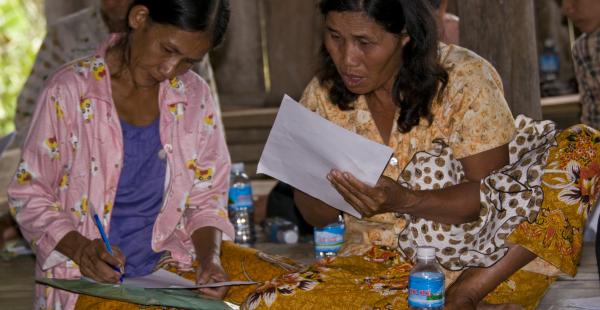
Integrating Gender Equality within Climate Change Planning Processes
As countries develop their climate change planning instruments, both sectoral and national plans, in relation to their NDCs, there is an opportunity to integrate gender equality considerations within these processes to enhance development outcomes and promote inclusive NDC implementation. Countries are utilizing this process to develop gender-related actions and engage gender institutions, as well as women’s groups, but this can also help change perspectives on women’s roles in national climate action.
Ghana and Kenya are integrating gender equality concerns within their NDCs and climate change plans by referencing the gender-related actions that will help meet their NDC/ climate targets. In its draft NDC implementation plan, Ghana has a policy action on increasing resilience of women and the vulnerable. The expected outcome is climate change and gender equality issues being promoted and institutionalized capacity building on these topics. In its draft National Climate Change Action Plan, Kenya has included the promotion of gender-responsive climate technologies and innovation in the private sector through the provision of financing, capacity building and start-up/scale-up services, targeting women and youth.
The development of the planning tools provide an opportunity for other countries to engage key actors who may not have been consulted during the development of the INDCs/NDCs. Countries can involve gender machineries, women’s groups and civil society organizations focused on gender equality during the stakeholder engagement process and also include them in the institutional arrangements to support the implementation of NDCs and climate actions. The plans also list the coordination among institutions that is needed to achieve various mitigation and adaptation actions, providing another entry point to ensure a whole-of-society approach. For instance, Kenya has listed the Ministry of Public Service, Youth & Gender Affairs as one of the institutions to support the priority action “to increase the number of households and entities benefiting from devolved adaptive services” and has engaged women’s groups as part of the plan’s consultation process.
As a live tool/process which will be periodically updated, the plans provide an opportunity to broaden the scope of how gender differentiated impacts of climate change are addressed. Instead of viewing women as a vulnerable group, there is an opportunity, if mitigation and adaptation actions integrated into the plans take it into account, to ensure women are recognized as agents of change within climate action.
These country actions reveal how the NDC process is a useful platform for governments to mainstream gender equality within existing planning tools, instead of in parallel processes. Since the existing plans have buy-in from the government, it is more effective to include gender equality and women’s empowerment considerations within these to help enhance development outcomes in NDC implementation.

